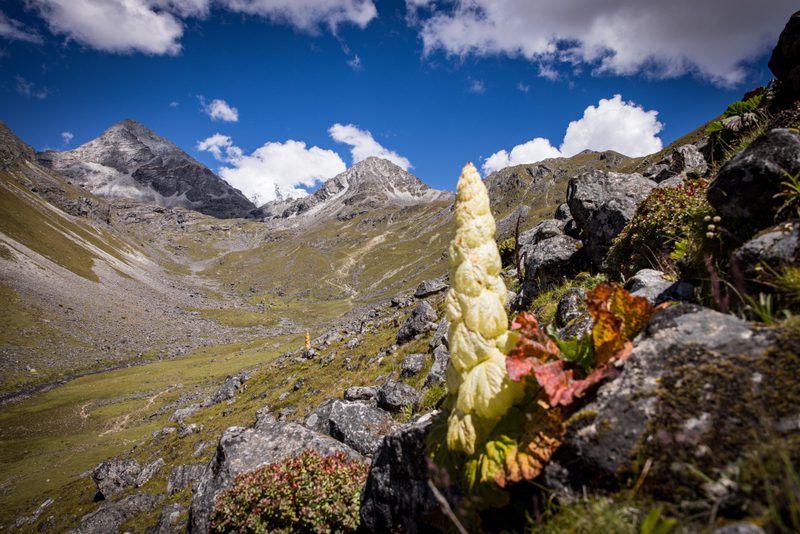This site uses cookies, as explained in our terms of use. If you consent, please close this message and continue to use this site.
Application deadline: 23 August 2024
 Photo: Jitendra Raj Bajracharya/ICIMOD.
Photo: Jitendra Raj Bajracharya/ICIMOD.
APPLY Here SUBMISSION GUIDELINES
The Himalayan Resilience Enabling Action Programme (HI-REAP) under the International Centre for Integrated Mountain Development (ICIMOD) is seeking contributions from experts and development practitioners for a compendium of case studies highlighting bioprospecting as a sustainable nature-based solution (NbS).
This compendium aims to have a comprehensive collection of sustainable bioprospecting practices that serve as viable livelihood options for the mountain communities in the Hindu Kush Himalaya (HKH) region. It will also examine various aspects of commercialising products derived from bioresources, including fair benefit sharing, engaging local and Indigenous communities, and addressing environmental, social, economic, and gender-related challenges.
We invite institutions to nominate experts or encourage experts to self-nominate to contribute their work in the form of a case study. We are specifically seeking exemplary bioprospecting approaches, projects, and start-ups that empower local and Indigenous communities, contribute to transforming current resource utilisation systems, and promote sustainability.
We are looking for practices that, once proven effective, can be adapted to benefit other regions, countries, and contexts, thereby empowering more communities.
Case studies should focus on the following themes:
To be selected, the initiatives must:
Please submit your application here by 11:59 PM NST, Friday, 23 August 2024. View the submission guidelines here.
Appropriate contributions highlighting sustainable bioprospecting practices in various sectors will be shortlisted. Each case study will be reviewed by a panel of experts. Finalised case studies will be published, and all contributors will be acknowledged as authors.
This knowledge co-production is part of the HI-REAP programme supported by the UK’s Foreign, Commonwealth and Development Office (FCDO). HI-REAP focuses on fostering regional cooperation and collaboration for policy influence and investment towards scaling of NbS and Actions for Clean Air (AfCA).
Bioprospecting is the systematic and organised search for useful products derived from bioresources that can be developed for commercialisation. It recognises traditional and Indigenous knowledge and explores opportunities for developing commercially valuable genetic and biochemical resources.
Bioprospecting holds potential as a nature-based livelihood option, especially for communities in high-altitude areas, given the rich biodiversity and abundance of high-value niche products such as medicinal and aromatic plants in these regions.
Recognised as an NbS, bioprospecting leverages the value of biological resources responsibly engaging local communities and Indigenous People to address their livelihoods concerns while generating environmental, climate and sustainable development co-benefits. Bioprospecting ensures that value chain are GESI responsive, and backed by strong policy and governance frameworks. There is ample prospect for integration of traditional knowledge and equitable benefit sharing mechanisms among the stakeholders.
ICIMOD aims to leverage bioprospecting as an NbS based on a sustainable approach bringing economic and social benefits to mountain communities and environmental benefits (biodiversity and climate resilience) for ecosystems through sustainable utilisation of their genetic resources in pharmaceutical and biochemical industries, and in the production of a wide array of commercially viable products. The HI-REAP programme supported by the UK’s FCDO under its Climate Action for Resilient Asia (CARA) Initiative, focuses on NbS to bolster climate resilience in the Himalayan region. Within this programme, bioprospecting is a pivotal NbS, dedicated to fostering sustainable development and resilience in mountain communities – innovating green businesses while strengthening the natural resources base for ecosystem resilience.
For queries, please contact:
Sunayana Basnet (Sunayana.basnet@icimod.org)